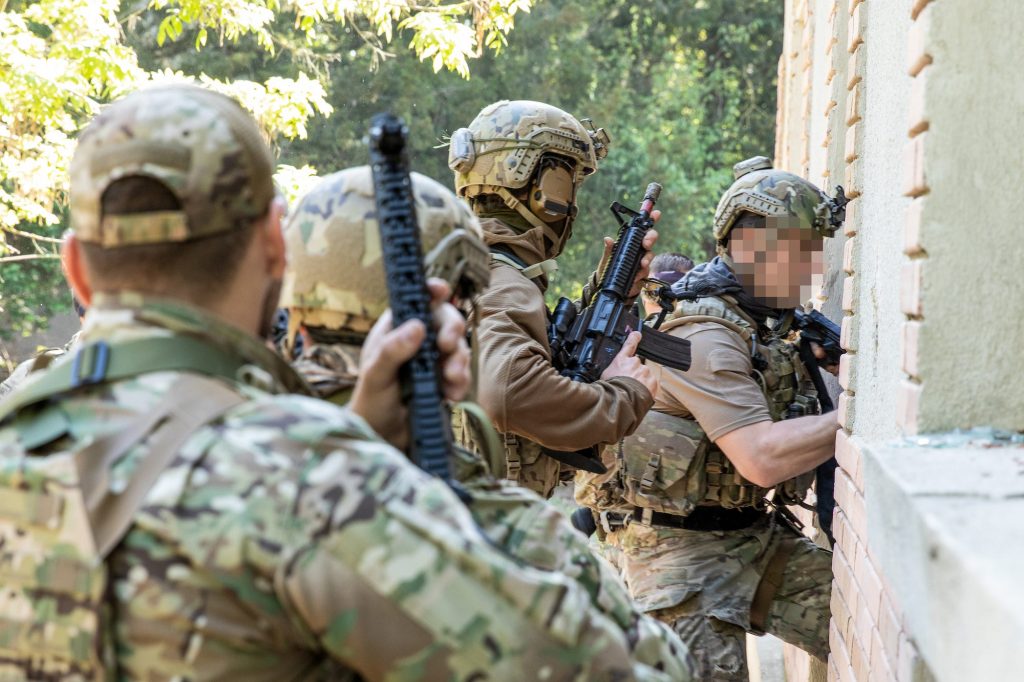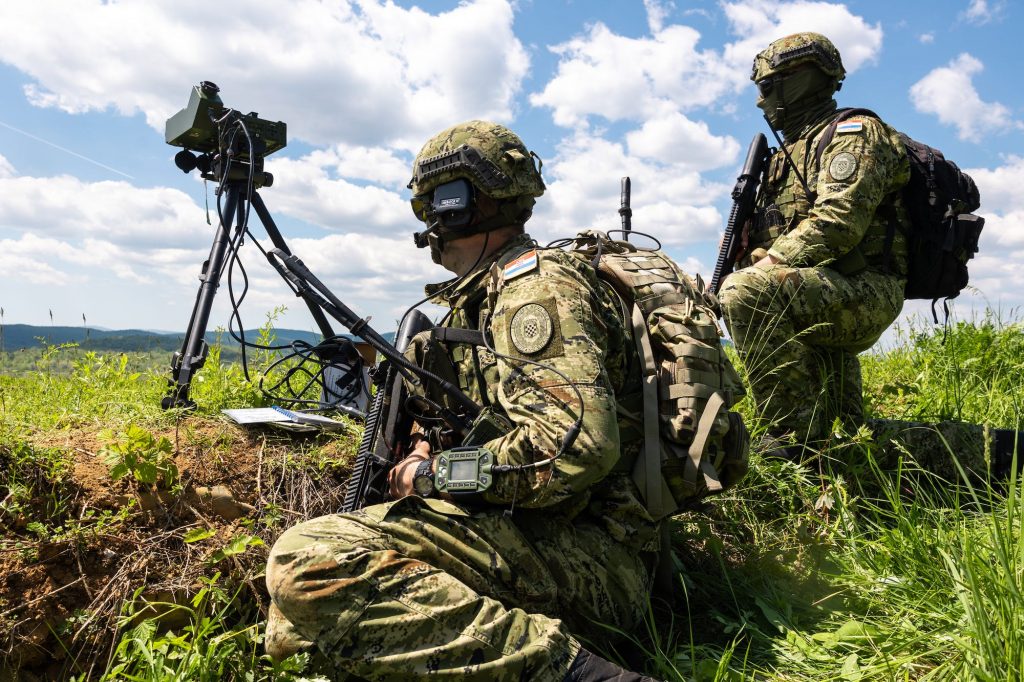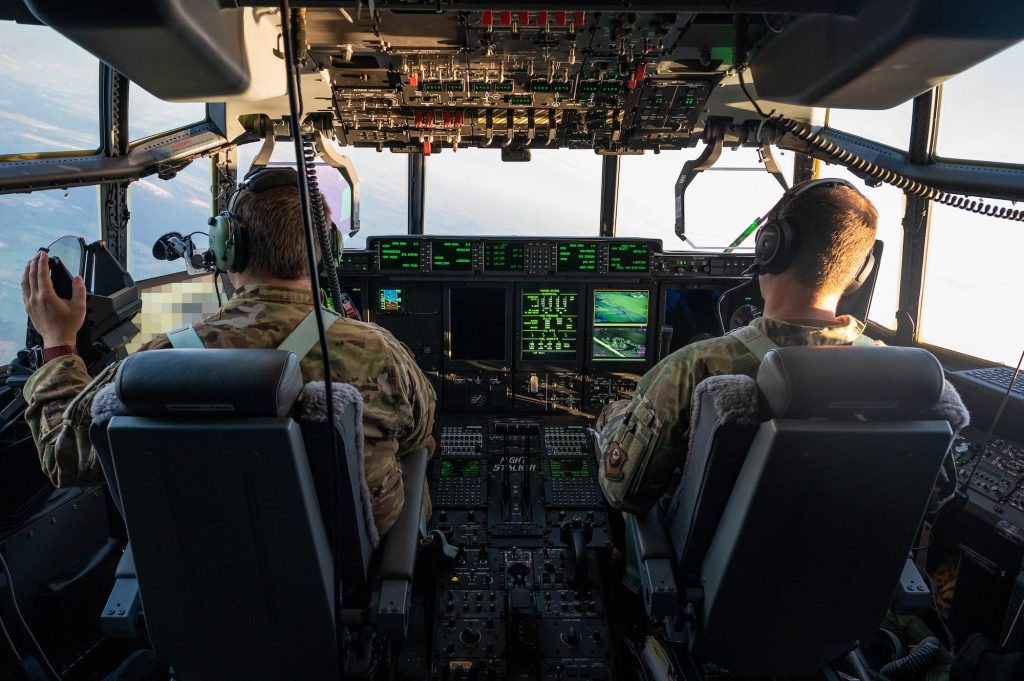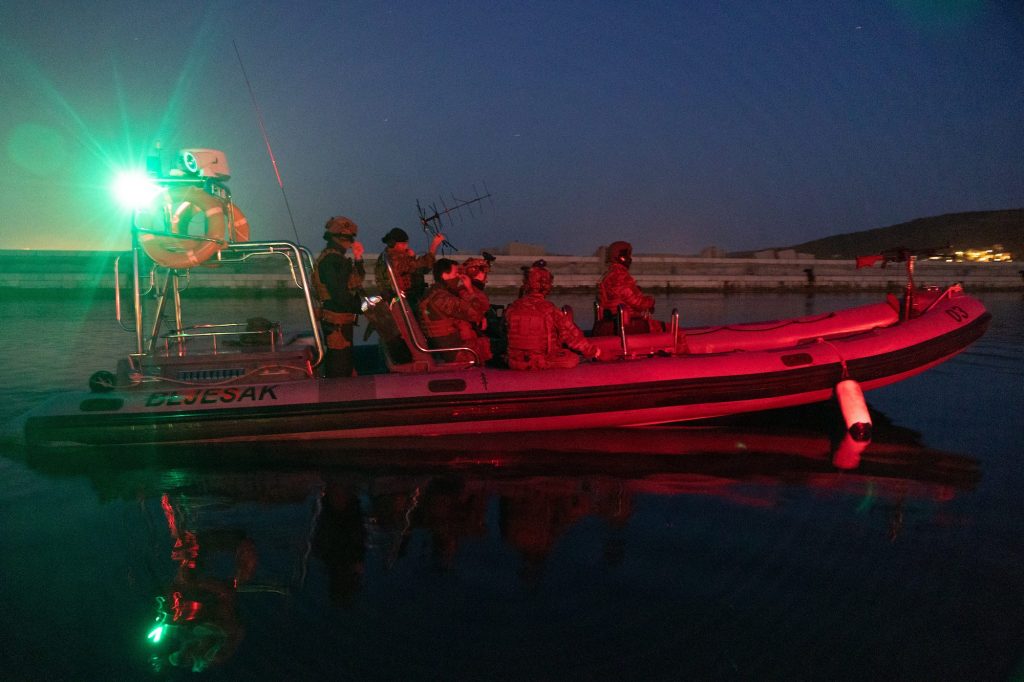- More than 3,300 special operators from 30 countries took part in Trojan Footprint 22 in May.
- The exercise was twice as big as it was last year, sending a message about NATO's resolve and capabilities.
- The exercise and its message come as Russia's war on Ukraine clouds the future of European security.
As Russia's war against Ukraine raged on, US Special Operations Command hosted its biggest exercise ever in Europe.
More than 3,300 special operators from 30 countries took part in Trojan Footprint 22 in May, doubling the size of last year's version of the exercise and sending a message about the special-operations capabilities of NATO and its partners.
Trojan Footprint 22 focused on mission command for special-operations units that rotate between the Baltics and the Black Sea. Moreover, according to the exercise's planners, it set the conditions for increased interoperability between special-operations forces and conventional units during "during combined, joint, and multi-domain warfare."

Coming just a few months after Russia renewed its attack on Ukraine, Trojan Footprint 22's main scenario reflected the pre-war situation.
"It was designed to be a slow-boil — a low-intensity conflict that can span years but creates constant pressure in various ways," Derek Coker, lead exercise planner, said in a press release. "The adversary attacks certain nations' ability to govern, creating internal dissonance and infighting that hacks away at the legitimacy of these governments, in essence trying to demonstrate that these nations are unable to govern themselves."
The exercise ran from May 2 to May 13, and among the more than 3,300 special operators were commandos from Sweden and Finland, which have applied for NATO membership.
Beyond its size, Trojan Footprint 22 was the first time an exercise had a combined joint force headquarters that simulated the joint command of several special-operations units from different NATO militaries.

From the US special-operations community, the 10th Special Forces Group took the lead. The Green Berets of the unit are always on the frontlines, training with and advising NATO allies and members in Europe.
Green Berets from the 10th Special Forces Group have also been largely responsible for training the Ukrainian special-operations forces that have wreaked havoc on Russian forces in Ukraine.
Planning for exercises like Trojan Footprint begins more than a year in advance, and while its focus seems heavy on US special operations, it really improves interoperability of the forces involved, John Black, a retired Army Special Forces warrant officer, told Insider.
"For America to work with its allies [and] with an ever-changing threat situation globally, it's important for us to be able to work fluidly with another nation, and Trojan footprint provides a great base and foundation for that to happen," added Black, who was on the ground during Trojan Footprint 22.
Russia in the background

The exercise took place amid unprecedented events in Europe. Russia's attack on Ukraine is the continent's largest conflict since World War II, and the exercise in May was the first time since the attack began in February that NATO special operators from so many countries have trained together.
While events in Ukraine were on the participants' minds, they didn't let that war take away from Trojan Footprint 22.
"From my perspective it really wasn't a focus or concern," Black said. "We just really wanted to work with our partnered nations to accomplish a large list of training tasks and improve our relationships with that country."
"It was great to see many nations that are very capable and have a fighting force. For me, this reinforced my belief in a safer tomorrow," the retired Green Beret added.

As the special-operations component of US European Command, Special Operations Command Europe is a constant presence in Europe and frequently trains with allies and partners there to build their capabilities and counter malign activities — mainly those of Russia.
"One of our priorities is building resilience against adversary efforts to undermine democratic processes and values. This joint, combined training in Europe will continue to build and strengthen those relationships with our allies and partners, establishing a common sight-picture for combat and peacekeeping missions abroad," Maj. Gen. David Tabor, the head of Special Operations Command Europe, said in the release.
Stavros Atlamazoglou is a defense journalist specializing in special operations, a Hellenic Army veteran (national service with the 575th Marine Battalion and Army HQ), and a Johns Hopkins University graduate.
